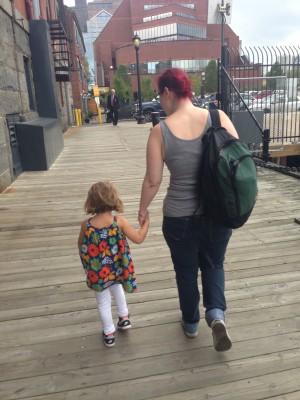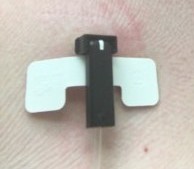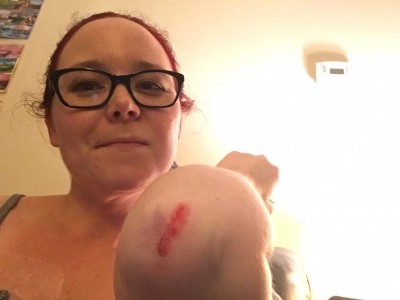A wicked symmetry
The GI tract moves. You chew food and swallow it but after that, the tract is on its own. Smooth muscle contracts and relaxes in rhythm, marking time by the forward propulsion of what you consumed. The food is pushed down the esophagus in a matter of seconds before entering the stomach. The GI tract moves. Hormones and enzymes and acid are released in the stomach. Digestion begins. The GI tract moves. This partially digested product is pushed through the pyloric valve into the small intestine. The GI tract moves. The food is degraded and all of its useful parts liberated. They are shuttled out of the intestine to nourish the body. The GI tract moves. The remaining substance is pushed to the colon. The colon reabsorbs water and minerals. The GI tract moves. Devoid of any nutritional role, the stool is passed through the rectum and the anus, where it leaves the bottom. Meters of GI tract. It all moves.
There is a line when you have serious GI motility issues. The issues are serious on either side of the line but we become defined by the choice to step across it. It changes everything and you can never go back.
This is the line: when you are afraid to put food into your body because you don’t know if you can get it out.
To say that my GI tract doesn’t move properly is laughably understated. It is so hard for me to get stool out of my body that I had an ostomy for years and will probably have an ostomy again. I currently rely on the magic of lidocaine gel, glycerin suppositories, and disimpaction to stool. The colon is the hill my GI motility has chosen to die upon. Above that, I have trouble, but it hasn’t been appreciably from dysmotility. I puke a lot and sometimes there’s blood in there and I need multiple doses of multiple meds daily to manage my nausea, but that was never from upper GI dysmotility.
Except this week, after several weeks of bad epigastric pain with eating on top of my abdominal neuropathy, colitis, and rectal pain, I am now vomiting up mast cell safe meals hours after eating it, completely undigested. My stomach is not moving food into the small intestine and it’s not digesting it either.
There is almost nothing I can do to my diet to improve GI motility beyond not eating solids. I can’t add in foods that are known to help because I either have serious mast cell reactions to them or they are contraindicated in colitis patients. Anything with fiber is dicey if I’m having colitis and I basically have colitis all the time. Up to this point, I have been able to minimize gastric pain as long as I ate foods I didn’t react to and that weren’t colitis triggers.
That is no longer the case. My stomach won’t do it anymore. It just won’t move food and it won’t break it down. Whatever does get below the stomach, mostly by gravity, eventually arrives at the colon and we all know how well that goes. I can’t keep food in my upper GI tract and can’t get it out of my lower GI tract, a sort of wicked symmetry.
The GI tract is composed of related but dissimilar parts. They are only really related because they are connected. The small intestine and the stomach and the rectum don’t have a ton in common if you remove this fact. Their allegiance is real but fragile. It is not that hard to break it.
For reasons that are hotly debated (including mast cell degranulation, nerve damage, and microbiome disruption), the GI tract stops working when you touch it. Post operative ileus is the most classic example of this phenomenon. Usually, the tract starts working again. But there is a limit. There is a limit to how many times you can touch the GI tract before it just stops working.
The continuity of my GI tract has been altered, sections removed and non-contiguous pieces sutured together. I have had scopes via all three access points to my GI tract, so many of them, and so many biopsies. All these little pieces torn out of me with cold forceps, these little pieces fixed in formalin. These little pieces that leave little craters, until the topography of my GI tract is as foreign as the surface of the moon. A moon that doesn’t even recognize itself and can only appreciate a wicked symmetry.


